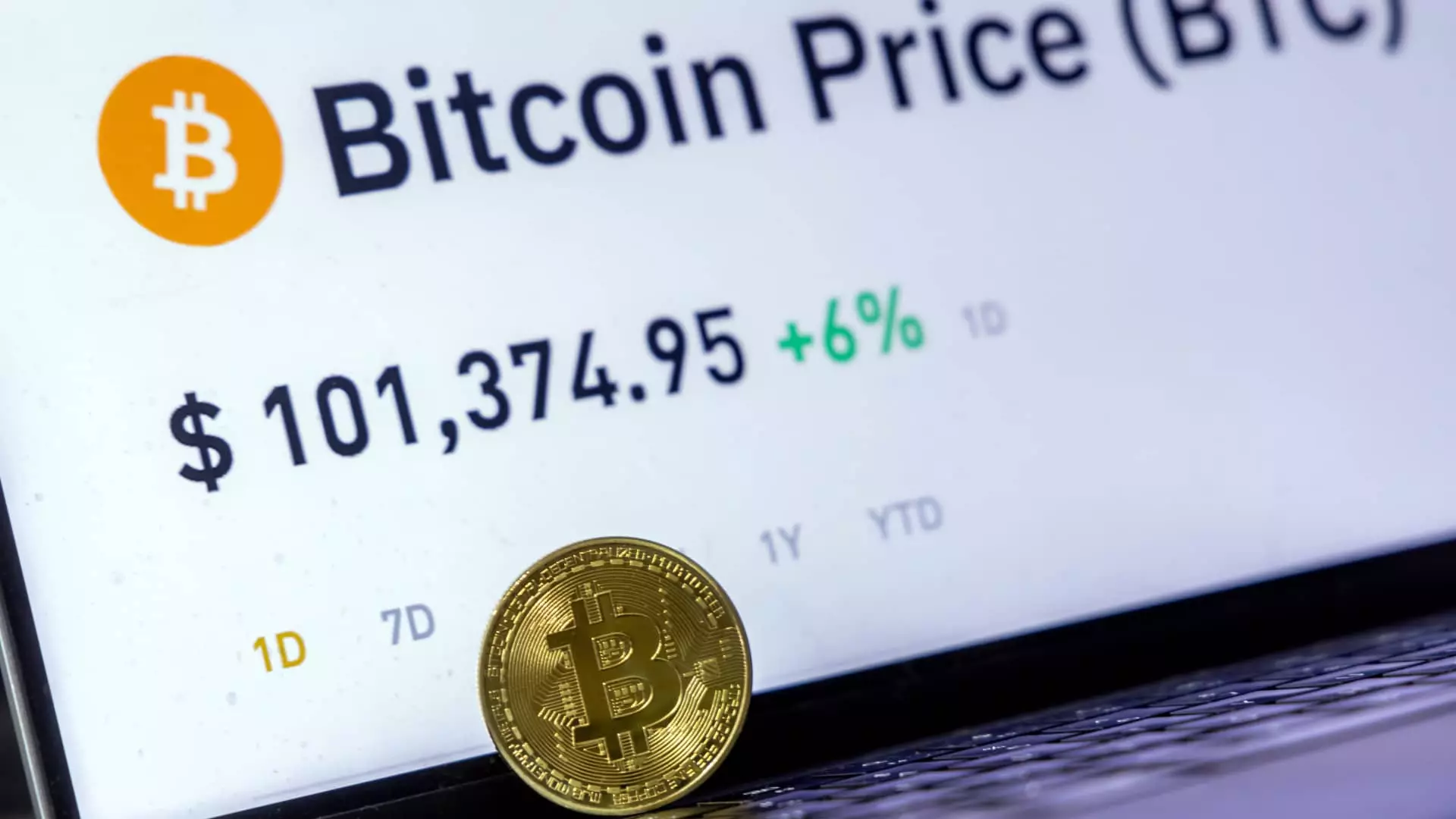The cryptocurrency market has witnessed a monumental shift as Bitcoin, the leading digital currency, surges above the coveted $100,000 mark. This landmark event comes after a year characterized by increasing acceptance and institutional endorsement, culminating in Bitcoin’s role as a focal point during the 2024 U.S. presidential election. While the prediction of such a rally may have sounded audacious years ago, recent developments reveal how the landscape of cryptocurrency has evolved, attracting participation from both retail investors and major financial institutions.
Bitcoin’s transition from a speculative asset, once perceived as the playground of retail traders, to a legitimate investment vehicle has been nothing short of spectacular. The first significant push came with the launch of Bitcoin Exchange-Traded Funds (ETFs) on January 11, 2024. These funds catalyzed a massive influx of capital, with the iShares Bitcoin Trust leading the charge, amassing an impressive $50 billion in assets. This rapid accumulation of wealth signals a shifting attitude on Wall Street, as skepticism surrounding Bitcoin’s legitimacy begins to wane.
According to Geoff Kendrick, the global head of digital assets research at Standard Chartered Bank, institutions have collectively purchased an astounding 683,000 Bitcoins year-to-date, driven by the advent of U.S. spot ETFs and major acquisitions by companies like MicroStrategy. Notably, a significant portion of these investments—approximately 245,000 Bitcoins—was secured in the aftermath of the U.S. elections, suggesting that political developments have had a profound influence on market dynamics.
Bitcoin’s newfound prominence extends beyond financial circles; it is intertwined with the fabric of American politics. The crypto lobby aggressively supported candidates during the 2024 election cycle, leading to increased visibility and legitimacy in governmental discourse. President-elect Donald Trump’s participation in the Bitcoin Conference in Nashville underscores this relationship, potentially marking a turning point for Bitcoin’s presence in political arenas.
Furthermore, Trump’s selection of Paul Atkins as the head of the Securities and Exchange Commission (SEC) signals a departure from the administration’s prior stance, which many perceived as hostile towards cryptocurrencies. The new leadership, viewed as more favorable to the crypto industry, is seen by advocates as a critical development that could foster a more nurturing regulatory environment. Robinhood CEO Vlad Tenev emphasized this shift, pointing to the importance of having decision-makers who comprehend and support cryptocurrency rather than viewing it as a threat.
The rise of Bitcoin has also been bolstered by broader economic sentiment. The cryptocurrency exploded in value, increasing by nearly 49% shortly after the November 4 elections. Economically, this could be interpreted as a vote of confidence from investors seeking alternatives amidst uncertain monetary policy and traditional market volatility. Federal Reserve Chair Jerome Powell’s remarks likening Bitcoin to gold instead of equating it with the U.S. dollar, although lukewarm, inadvertently contributed to Bitcoin’s legitimacy as an asset class, drawing parallels with a time-honored store of value.
While Powell’s commentary doesn’t explicitly endorse Bitcoin, its comparison to gold—a well-established asset—could reshape public perception. With inflationary pressures and global uncertainties casting a shadow over fiat currencies, many investors are increasingly looking at Bitcoin as a viable hedge.
The ascent of Bitcoin above the $100,000 threshold marks a historic moment in the trajectory of cryptocurrencies, fueled by the robust integration of institutional investment and political engagement. As major financial entities and political figures embrace this digital currency, its role in the global financial system seems more significant than ever. While challenges persist, particularly regarding regulation and market volatility, the trajectory suggests that Bitcoin is becoming a mainstream financial instrument rather than a fringe speculation. Observers will be watching closely to see how this momentum continues to develop and what it signifies for the future of the cryptocurrency market overall.

